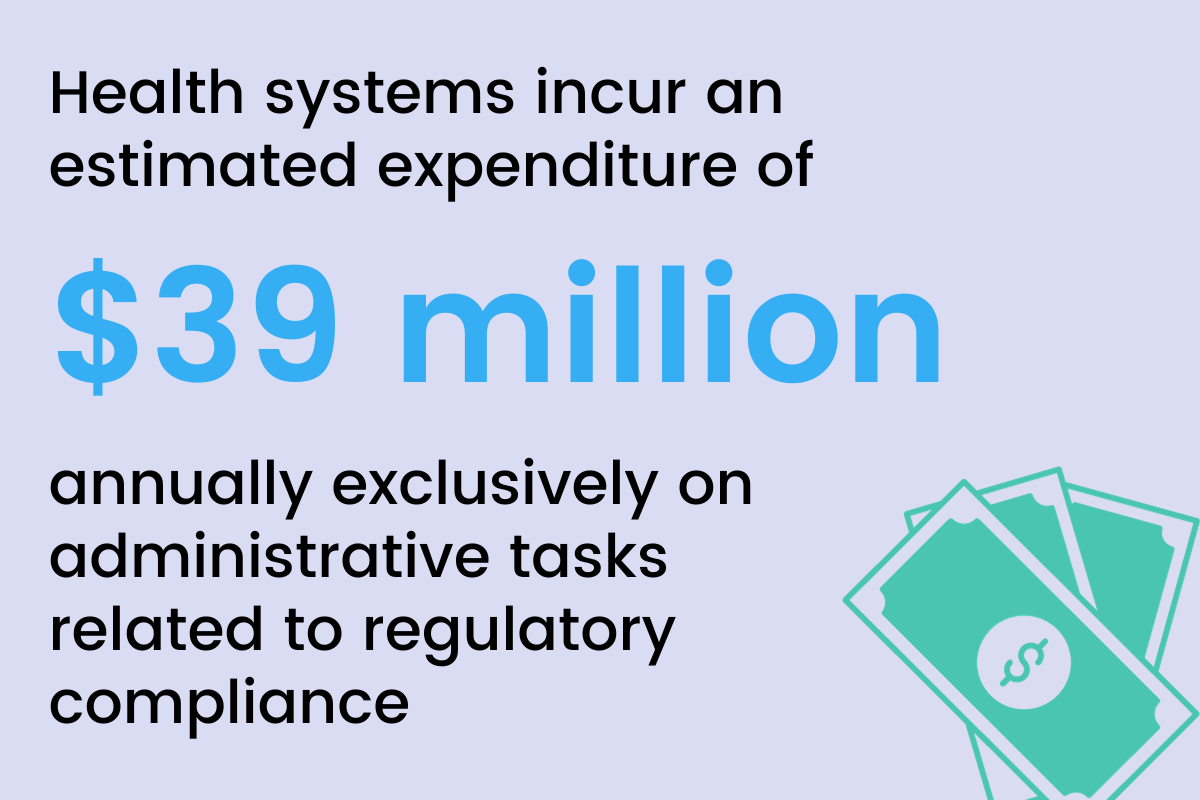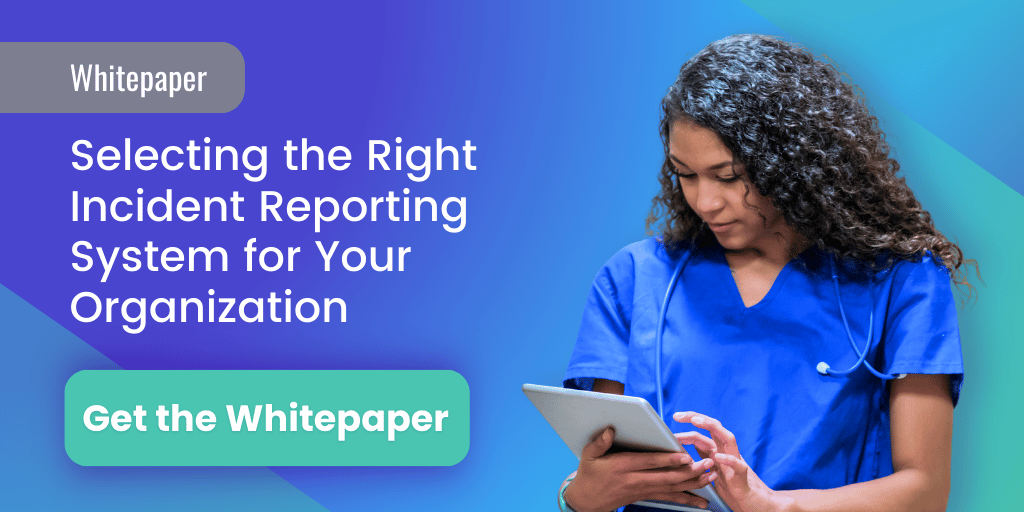4 min read
Harnessing the Power of Hospital Risk Management Software
Performance Health Partners
August 14, 2023

Hospital risk management software is crucial for tackling the wide range of operational risks that hospitals face. Striving to offer the best care to patients, hospitals occasionally encounter issues that can negatively impact the patient experience. The employment of this software allows for the tracking and prevention of such events, enhancing patient care quality over time. Continue reading to understand the advantages of this software and essential factors to consider when selecting one.
5 Benefits of Hospital Risk Management Software
As we delve deeper into the discussion on healthcare risk management software, let's explore the five pivotal advantages it brings to healthcare organizations:
Risk Identification and Assessment
Hospital risk management software empowers healthcare professionals to identify and assess various risks, encompassing clinical, operational, financial, and reputational domains. The software's capacity to analyze extensive data quickly facilitates the early detection of risks, and thus allows organizations to address potential issues at an early stage, preventing them from becoming more serious issues.
This heightened focus on risk management not only cultivates trust among patients, but it also enhances the organization's reputation and boosts shareholder value.
It's worth noting that recent studies indicate the level of patient trust in hospitals and health systems stands at around 50%, underscoring the need for such improved measures in risk management in healthcare.
Improved Operational Efficiency
The software notably streamlines the process of incident reporting and tracking within healthcare settings, including near misses and adverse events. The software ensures each incident is meticulously documented, rigorously investigated, and thoroughly analyzed. This sets a strong foundation for preventing future occurrences. Moreover, the system automates repetitive tasks, such as data entry, significantly freeing up staff time and reducing potential for human errors.
Enhancing the reporting process, the software's user-friendly design results in quicker and easier report generation, encouraging active employee engagement. This leads to frequent and accurate incident reporting, fostering robust risk management strategies.
By minimizing time spent on administrative tasks, healthcare professionals can focus more on patient care. Therefore, hospital risk management software not only maximizes operational efficiency but also contributes to improved patient outcomes.
Optimized Compliance Management
Hospitals are bound by a complex matrix of regulatory requirements and industry standards that they must consistently adhere to. Leveraging hospital risk management software significantly helps in assuring compliance to these stringent standards, consequently mitigating potential legal and financial consequences that can arise from non-compliance.
The American Hospital Association estimates health systems incur an estimated expenditure of $39 million annually, exclusively on administrative tasks related to regulatory compliance.
This stark figure underscores the critical importance of an efficient management tool. By streamlining these compliance activities, the software can play a pivotal role in cost reduction while ensuring adherence to necessary regulations.
Continuous Improvement
Hospital risk management software plays a crucial role in fostering a culture of continual improvement within healthcare organizations. This robust tool enables the comprehensive analysis of incidents and associated risks, generating valuable insights for healthcare provider organizations.
These insights guide the development and implementation of strategic risk mitigation efforts, policy updates, and targeted training programs. By pinpointing areas of potential gaps and weakness, the software facilitates the creation of specific action plans designed to boost patient safety measures and overall quality of care.
Moreover, the continuous monitoring capability of the software allows for real-time adaptations. This ensures that implemented strategies remain relevant and effective in an ever-evolving healthcare environment. The cyclical nature of the improvement process, supported by the healthcare risk management software, is a testament to its long-term value.
In essence, healthcare risk management software enables healthcare organizations to shift from a reactive to a proactive stance, turning every challenge into an opportunity for growth and improvement.
Flexibility
The dynamic nature of the healthcare industry demands regular policy adjustments. Implementing a hospital risk management software introduces a degree of much-needed flexibility. It enables systems and processes to swiftly adapt in response to regulatory changes, minimizing disruption and maintaining efficiency.
The software ensures that these changes are implemented seamlessly, sparing employees from drastic adjustments in their procedural routines. In turn, this simplifies their role in adherence to evolving protocols, letting them focus on improving patient safety rather than navigating new reporting methods.

What to Look for When Choosing the Right Hospital Risk Management Software
When choosing the right hospital risk management software, healthcare risk managers should consider several essential factors to ensure it aligns with the specific needs and requirements of your healthcare organization. Here are some key aspects to look for:
- Compliance with Regulations: Ensure that the software complies with relevant healthcare regulations and industry standards, such as HIPAA, GDPR, and other regional data protection laws. It should also align with risk management guidelines set by accrediting bodies like The Joint Commission. There are currently 629 regulatory requirements that must be followed, which can be difficult to follow without proper software.
- User-Friendly Interface: The software should have an intuitive and user-friendly interface to facilitate easy adoption by staff at all levels. With simple training, staff should be able to easily understand the software. A complicated system may hinder the reporting and tracking of incidents, leading to underutilization.
- Customization and Scalability: Each hospital has unique risk management needs. The software should allow for customization to adapt to the hospital's existing healthcare risk management processes and workflows. Additionally, it should be scalable to accommodate future growth and changing requirements.
- Integration Capabilities: Look for software that can integrate with other hospital systems, such as electronic health records. Seamless integration helps streamline data sharing and ensures all relevant information is available to the risk management system. This also avoids having to re-report old information.
- Data Security and Privacy: Given the sensitive nature of healthcare data, data security and privacy are paramount. The software should have robust security measures in place to protect patient information and comply with data protection regulations. With the current rise of cybersecurity issues, it’s even more important to ensure the hospital risk management software you choose will safely house your organizations data. In a study done by Protenus, it was found that between 2022 and 2023, there was a 44% increase in the number of hacks in healthcare organizations.
- Reporting and Analytics: Effective software should offer robust reporting and analytics capabilities. It should generate actionable insights from data, helping administrators make informed decisions and track the effectiveness of risk mitigation strategies.
- Vendor Reputation and Experience: Research the vendor's reputation in the healthcare industry and evaluate their experience in providing risk management solutions. Check customer reviews and testimonials to gain insights into their track record. Choose a service that has a proven record of providing great customer service and timely support.
In conclusion, healthcare risk management software plays a vital role in safeguarding patient safety, promoting compliance, and improving overall hospital performance. By proactively addressing risks, healthcare organizations can foster a culture of safety and quality care.
Ensuring careful consideration in selecting a software that best suits your organization's needs and contributes to enhancing patient safety is the best way to ensure a seamless integration into your organization.
Ready to get started?
Learn how Performance Health Partners’ hospital risk management software can help your organization improve outcomes and patients' safety. Click here to get started.



